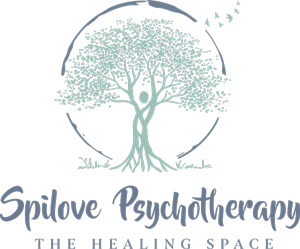Putting off self- care? Julia Salerno, one of our graduate level therapists, opens up about her journey to accepting her need for self-care..
6 Ways to Break Free from Body Shame
Working with a Graduate Level Therapist in Philadelphia, PA
Preventing Burnout: Mindfulness Practices for Creating Space by Melanie Taylor
Yoga Therapy on the Main Line: Why Your Breath is Your Best Friend by Melanie Taylor, LMFT, RYT-500
Your breath is both a complicated and conveniently simple process that weaves together the communication between your body and mind. Linked to your nervous system, your breath has the capabilities of keeping you alive, soothing your body and mind and increasing energy. Your breath holds a wealth of resources for you. All you have to do is attend to it. Here’s some ways to access its usefulness.
"We cannot love others until we love ourselves" by Mikala Morrow
"We cannot love others until we love ourselves"
by Mikala Morrow, Villanova Graduate Counseling Intern
This saying has been a cliché statement that has been thrown around as a way to encourage self-care or even used as a convincing statement to those who find it hard to love themselves. What does this statement truly mean?
It means that someway, somehow we must find, within us, love. This must mean that love is an innate ability and we all possess the ability to love ourselves without the assistance of others.
Personally, I do not believe this to be true. Can we truly have an innate ability to love ourselves without any help from others? If we truly cannot love others until we love ourselves, we have to be able to love ourselves without help, right? Which comes first, the chicken or the egg? Which comes first, our innate ability to love? Or is love taught to us from our caretakers, partners, peers or a higher power?
What if, “We cannot love others until we love ourselves” becomes “We cannot love ourselves and others until we have been loved.” My argument is that in order to learn to love others, we must first be loved. We must learn how to love and what love is.
Imagine a child who is neglected by their caretaker. This child never truly learns love. Instead, to them, love means neglect. Later on in life when meeting new people, how will they love them? If all this older child has known is that love is neglectful, they too will neglect those that they love.
Compare the first child with someone who has a loving caretaker who has shown interest in who they are. This child will grow up with the idea that love is showing interest in others and will love in this way. These examples may not be true for all, but it is something to think about. The child in the first scenario may
learn somewhere how to truly love but this will not come as easily as the child in the second scenario.
We need to learn what love looks like towards us and we also need to learn how we love. We may love by giving others gifts or our time. We may show our love through compliments or by offering a shoulder to cry on. We all have a unique way to show love. In order to practice our ways of loving, we need people around us to accept our love. If our unique way of showing love is rejected, we learn that we are not good at loving, or our way of loving is wrong.
Let’s say you show love with your time but your partner becomes annoyed and tells you they just want space. Your way of loving has been pushed away. We need other people around us to affirm the way we love. While the statement, “We cannot love others until we love ourselves” has a good message at the core, it can be damaging for those who have never learned how to love themselves.
We all need love whether it is from other humans on earth (maybe even from a pet) or a supernatural love. Then we can truly love others’ authentically and comfortably.
Mikala has an intensely compassionate and unique way of connecting with you to help you identify and express your feelings and your deepest sense of self. She is persistent and encouraging in the face of hopelessness and despair. She especially loves working with women to provide tools to alleviate anxiety and depression. Mikala has a wealth of experience and is skilled in the mental health field working with domestic violence, food & body issues and addiction. If you're struggling to tolerate your emotions and you're looking for a guide to help you get to know yourself better, give her a call now at 570-412-4516.














